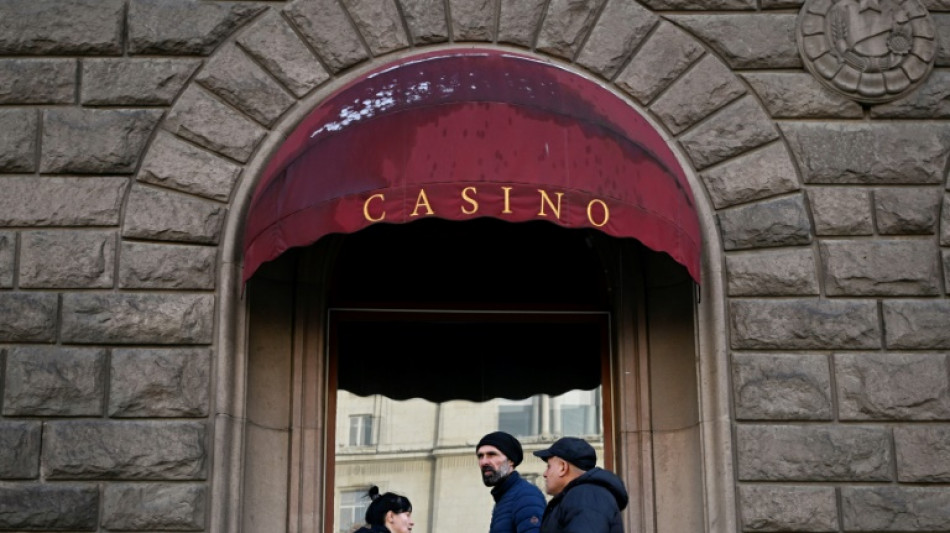
-
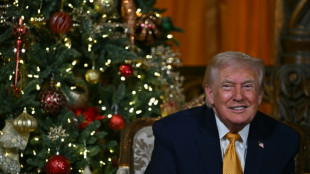 Trump takes Christmas Eve shot at 'radical left scum'
Trump takes Christmas Eve shot at 'radical left scum'
-
Leo XIV celebrates first Christmas as pope

-
 Diallo and Mahrez strike at AFCON as Ivory Coast, Algeria win
Diallo and Mahrez strike at AFCON as Ivory Coast, Algeria win
-
'At your service!' Nasry Asfura becomes Honduran president-elect
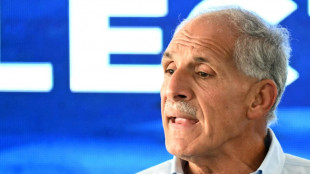
-
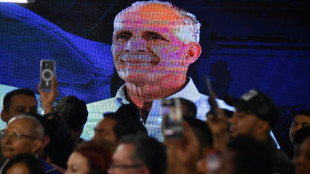 Trump-backed Nasry Asfura declared winner of Honduras presidency
Trump-backed Nasry Asfura declared winner of Honduras presidency
-
Diallo strikes to give AFCON holders Ivory Coast winning start
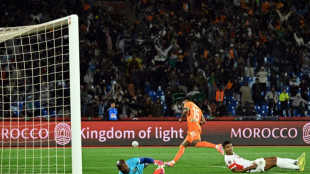
-
 Spurs captain Romero facing increased ban after Liverpool red card
Spurs captain Romero facing increased ban after Liverpool red card
-
Bolivian miners protest elimination of fuel subsidies
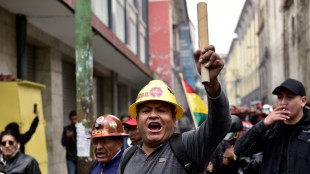
-
 A lack of respect? African football bows to pressure with AFCON change
A lack of respect? African football bows to pressure with AFCON change
-
Trump says comedian Colbert should be 'put to sleep'

-
 Mahrez leads Algeria to AFCON cruise against Sudan
Mahrez leads Algeria to AFCON cruise against Sudan
-
Southern California braces for devastating Christmas storm
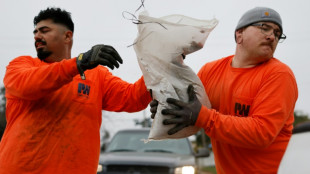
-
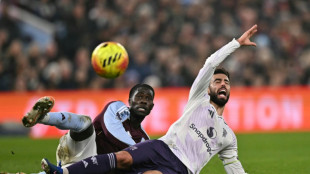 Amorim wants Man Utd players to cover 'irreplaceable' Fernandes
Amorim wants Man Utd players to cover 'irreplaceable' Fernandes
-
First Bond game in a decade hit by two-month delay

-
 Brazil's imprisoned Bolsonaro hospitalized ahead of surgery
Brazil's imprisoned Bolsonaro hospitalized ahead of surgery
-
Serbia court drops case against ex-minister over train station disaster
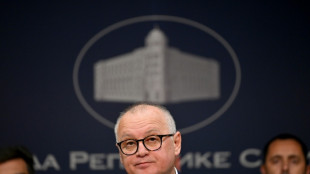
-
 Investors watching for Santa rally in thin pre-Christmas trade
Investors watching for Santa rally in thin pre-Christmas trade
-
David Sacks: Trump's AI power broker
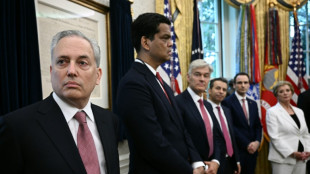
-
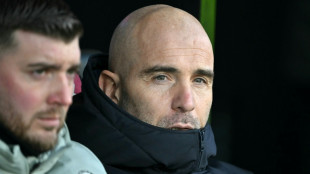 Delap and Estevao in line for Chelsea return against Aston Villa
Delap and Estevao in line for Chelsea return against Aston Villa
-
Why metal prices are soaring to record highs
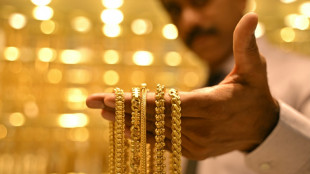
-
 Stocks tepid in thin pre-Christmas trade
Stocks tepid in thin pre-Christmas trade
-
UN experts slam US blockade on Venezuela

-
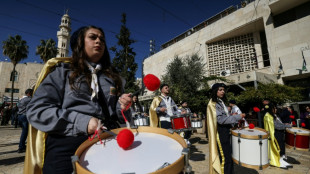 Bethlehem celebrates first festive Christmas since Gaza war
Bethlehem celebrates first festive Christmas since Gaza war
-
Set-piece weakness costing Liverpool dear, says Slot

-
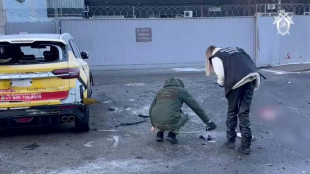 Two police killed in explosion in Moscow
Two police killed in explosion in Moscow
-
EU 'strongly condemns' US sanctions against five Europeans
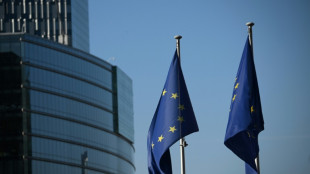
-
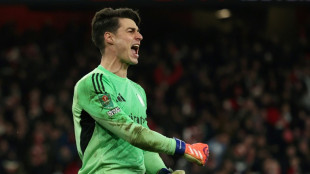 Arsenal's Kepa Arrizabalaga eager for more League Cup heroics against Che;sea
Arsenal's Kepa Arrizabalaga eager for more League Cup heroics against Che;sea
-
Thailand-Cambodia border talks proceed after venue row
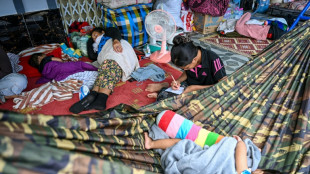
-
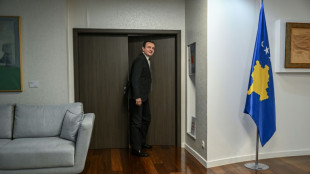 Kosovo, Serbia 'need to normalise' relations: Kosovo PM to AFP
Kosovo, Serbia 'need to normalise' relations: Kosovo PM to AFP
-
Newcastle boss Howe takes no comfort from recent Man Utd record

-
 Frank warns squad to be 'grown-up' as Spurs players get Christmas Day off
Frank warns squad to be 'grown-up' as Spurs players get Christmas Day off
-
Rome pushes Meta to allow other AIs on WhatsApp

-
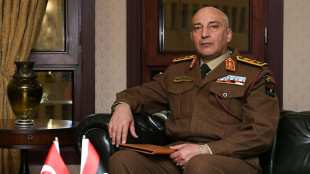 Black box recovered from Libyan general's crashed plane
Black box recovered from Libyan general's crashed plane
-
Festive lights, security tight for Christmas in Damascus
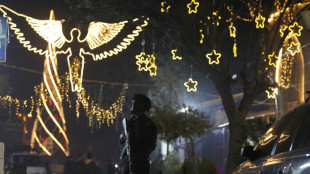
-
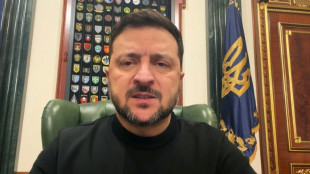 Zelensky reveals US-Ukraine plan to end Russian war, key questions remain
Zelensky reveals US-Ukraine plan to end Russian war, key questions remain
-
El Salvador defends mega-prison key to Trump deportations

-
 Stranger Things set for final bow: five things to know
Stranger Things set for final bow: five things to know
-
Grief, trauma weigh on survivors of catastrophic Hong Kong fire
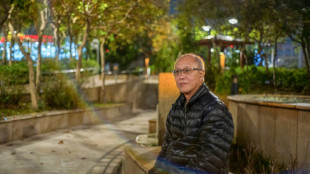
-
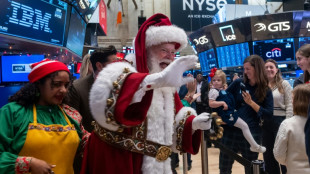 Asian markets mixed after US growth data fuels Wall St record
Asian markets mixed after US growth data fuels Wall St record
-
Stokes says England player welfare his main priority
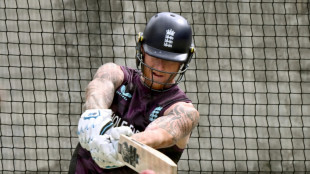
-
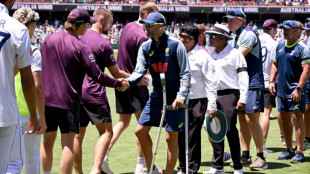 Australia's Lyon determined to bounce back after surgery
Australia's Lyon determined to bounce back after surgery
-
Stokes says England players' welfare his main priority
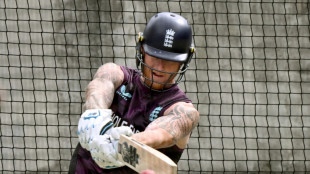
-
 North Korean POWs in Ukraine seeking 'new life' in South
North Korean POWs in Ukraine seeking 'new life' in South
-
Japanese golf star 'Jumbo' Ozaki dies aged 78
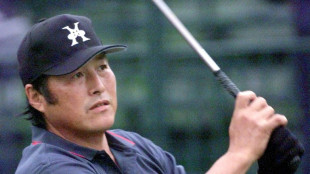
-
 Johnson, Castle shine as Spurs rout Thunder
Johnson, Castle shine as Spurs rout Thunder
-
Thai border clashes hit tourism at Cambodia's Angkor temples

-
 From predator to plate: Japan bear crisis sparks culinary craze
From predator to plate: Japan bear crisis sparks culinary craze
-
Asian markets mostly up after US growth fuels Wall St record
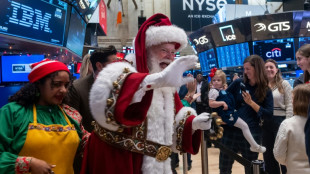
-
 'Happy milestone': Pakistan's historic brewery cheers export licence
'Happy milestone': Pakistan's historic brewery cheers export licence
-
Chevron: the only foreign oil company left in Venezuela


Bulgaria court ruling turns spotlight on gambling addiction
Lazar was overcome by a "deep sense of fear": his wife had just found out that he had racked up thousands of euros worth of debt after his attempts to control his gambling addiction had failed.
Despite voluntarily signing up to a register of gambling addicts supposedly banned from betting, the 36-year-old IT worker still managed to lose around 5,000 euros ($5,200) on a sports betting website.
Feeling desperate, Lazar -- not his real name -- took the sports betting company to court for allowing him to bet, and he won.
Despite initially having had "little hope", in October the Sofia court found in favour of Lazar, who is now trying to help others "who are faced with the same problem" in Bulgaria, where gambling is widespread.
Lazar had secretly funded his habit with loans but soon reached the point where "there was no way to hide it" anymore from his wife.
His battle against addiction is by no means unique in the European Union's poorest country, where the government is struggling to help people control the habit.
"In Bulgarian society, it (gambling) is seen as a lack of will, not as a public health issue," said Lazar, who despite having become an advocate on this issue still declined to give his real name because of the stigma.
His lawyer, Kristina Karakoleva, hailed an "unprecedented" court decision -- which the betting company is appealing -- that can "save lives" by highlighting a largely ignored scourge.
- Communist legacy -
One out of 10 Bulgarians has engaged in gambling other than buying lottery tickets, according to a survey last year by the MarketLinks institute.
Like other countries in the former east European communist bloc, Bulgaria set up a state-run lottery in the 1950s that offered tempting prizes.
Foreigners were also allowed to gamble at casinos, often set up in luxury hotels and infiltrated by the communist security services.
The sector is now worth several billion euros, according to Tihomir Bezlov, a researcher at the Sofia-based think tank CSD.
Big-prize jackpot money paid out in 2023 alone represented nearly three percent of GDP.
On the boulevards of the capital Sofia, gaming company adverts promise huge winnings, while 20 casinos and hundreds of smaller outlets are open to the country's 6.5 million people, in addition to 24 companies offering popular online games.
In recent years, the government has vowed to better regulate the sector and to fight addiction, including by banning private lotteries and by establishing the register of people blocked from betting sites and rooms.
Some 41,000 citizens have voluntarily requested to be registered on this list but recently conditions were relaxed, making it possible to unsubscribe after a period of just one month.
As a result, around 8,000 people have crossed off their names.
"Thirty days is not enough to heal," lamented Lazar.
"I needed six months just to realise that I was addicted" and much longer "to be able to control myself" knowing that "you never really get out of addiction," he said.
- 'Credit spiral' -
An avid tennis player, Lazar started betting on sports some 15 years ago.
He eventually quit his job because he was earning more through betting than he was as an IT worker.
But after a few years, his luck changed and he found himself trapped in a "credit spiral", forced to return to work and taking out ever-bigger loans to satisfy his addiction.
When he started a family, he tried to quit -- but failed.
Despite signing up to the gambling-ban registry, he managed to bet the equivalent of 10,000 euros and lost almost half of it.
It was worth two months' salary.
"At times like this, anger grips you, you withdraw into yourself, you don't want to admit defeat," he said.
He is now seeing a psychologist.
The gamblers' registry is important, said Karakoleva, who specialises in this type of case.
"They (my clients) try to have a stable life, to preserve the unity of their family. But as long as they have temptations, they are like Sisyphus," she said, referring to the mythical ancient king condemned for eternity to roll a boulder up a hill.
But while the registry is "one of the most effective prevention measures for vulnerable people... it cannot be the only tool," said Angel Iribozov, president of Bulgaria's gaming industry association.
Iribozov advocates prevention campaigns and telephone assistance.
Gambling addicts can "easily hide" their vice, said Lazar.
"The hardest part is overcoming the shame," he said.
Y.Kobayashi--AMWN


